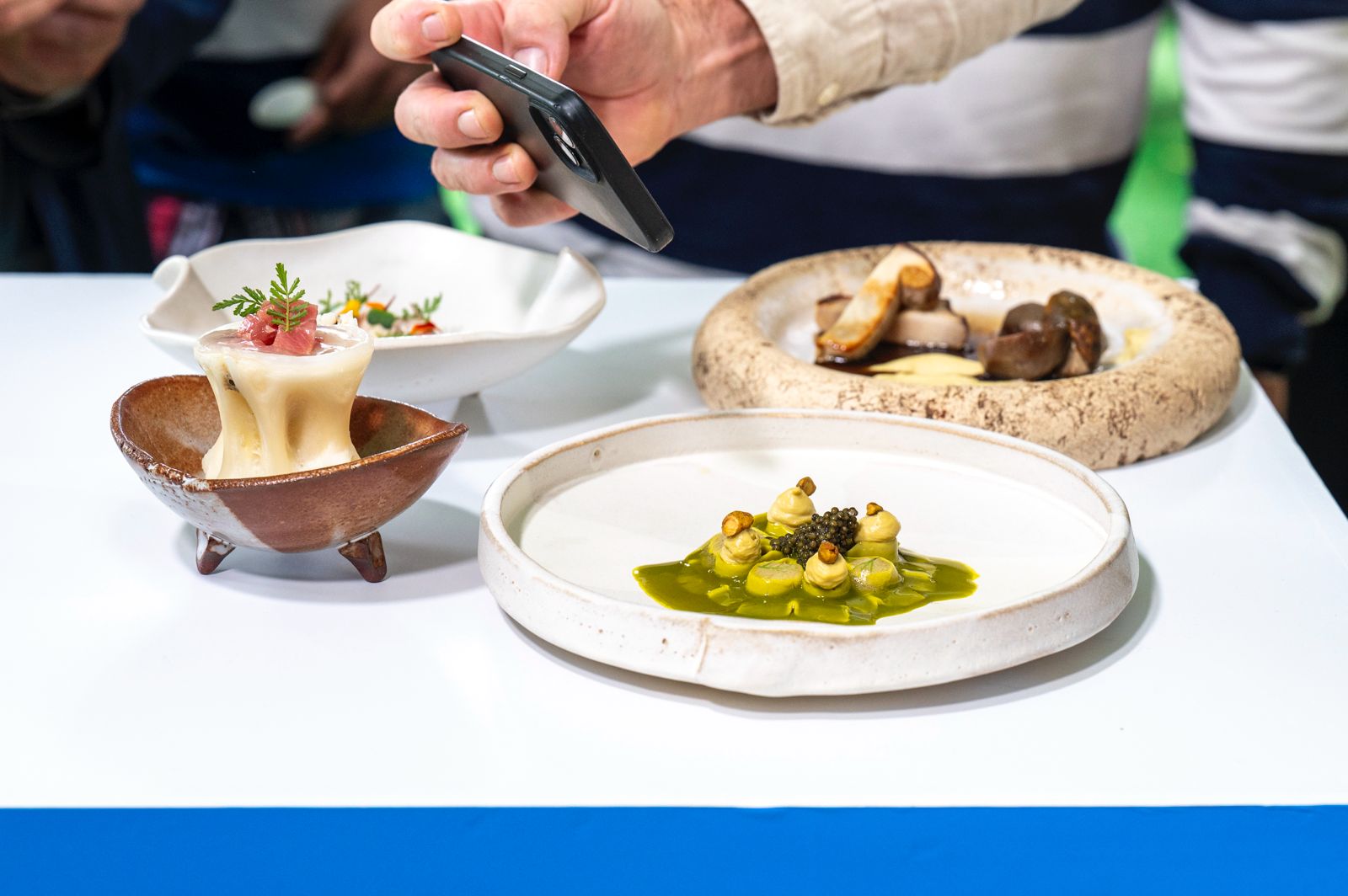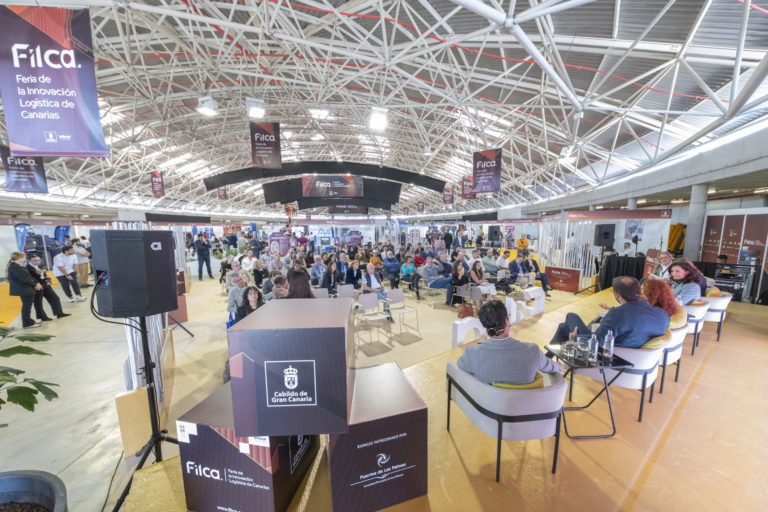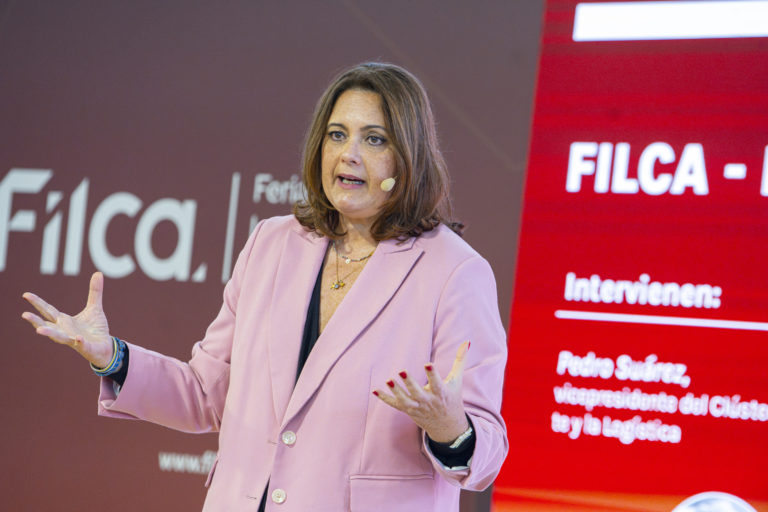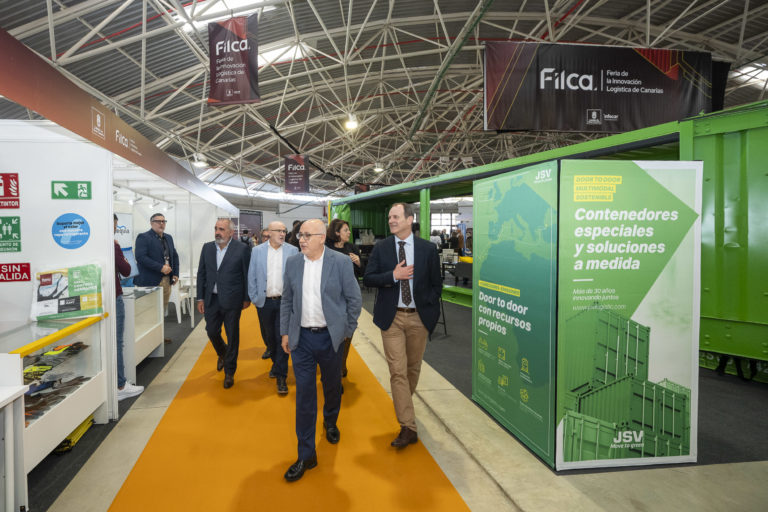- The gastronomic congress celebrated its seventh edition with two intensive days and nearly 700 attendees.
The Convent of the Dominican Sisters in Teror once again became the epicentre of gastronomy in the Canary Islands during the second and final day of the Orígenes Gran Canaria Congress. With over 350 attendees, including industry professionals and students, the event featured presentations exploring the future of gastronomy from various angles, emphasising sustainability, innovation, service, bakery, and pastry.
Thus, Orígenes Gran Canaria concludes its seventh edition, which, in the words of the Economic Development Councillor of the Cabildo of Gran Canaria, Minerva Alonso, “has managed to establish itself through the effort and commitment of the gastronomic sector, but also thanks to the commitment of the Cabildo of Gran Canaria, with the cooperation of the Chamber of Commerce through the Gran Canaria Me Gusta program.” This congress “was created to provide growth opportunities for the entire sector in Gran Canaria, and seeing both professionals and students in these shared spaces of reflection is very satisfying as it means we are on the right path,” the councillor concluded.
One of the first presentations was by Xevi Ramón, founder of Triticum, who addressed “The Present and Future of Restaurant Bakery.” Xevi, one of Spain’s top bakers, has revolutionized bakery by working exclusively for high-end restaurants. He shared his experience on repositioning bread as a gourmet product, explaining the challenges he faced in restoring its value in a market that had devalued it. Attendees had the opportunity to taste various types of bread, from those made with cheese, spices, and nuts to black breads inspired by German black bread.
Chef Israel Ramos, from Mantúa Restaurant in Jerez de La Frontera (one Michelin star), offered an inspiring talk on “Small Producers, the Great Pillars of Gastronomy.” Ramos explained how his gastronomic proposal is built around products from small farmers, ranchers, and fishermen, who provide essential ingredients for a unique offering. His presentation highlighted the importance of strengthening the relationship between high-end cuisine and local producers.
Renowned chef Mario Sandoval, with two Michelin stars, spoke on “Transforming Gastronomy Without Losing Its Essence.” Sandoval shared his family experience, explaining how he and his brothers evolved their parents’ business without losing the inherited values. He presented his working technique with live foods, using enzymes and ferments to transform textures and flavors, demonstrating how innovation can serve tradition.
María José Martínez, from Lienzo Restaurant, and José Luis Espino, from the recently closed Bevir Restaurant, both chefs with strong sustainable practices, presented a joint talk titled “From the Sea to the Swarm: The Path to Sustainability of the Great Atlantic Sea Bass.” They explained how they incorporate sustainability in their restaurants, using ingredients such as farmed sea bass and techniques like garum, a ferment made from fish waste with interesting culinary applications.
Another highlight on the topic of service was the presentation by Pablo Sacerdotte, head of service at Coque Madrid, who discussed how fine dining service has evolved in the 21st century. Sacerdotte, with a modern and relaxed approach, has broken away from traditional service conventions, showcasing a new path to excellence without rigid formality.
The Michelin-starred restaurant Oba demonstrated how they “cook their territory,” with chefs Juan Sahuquillo and Javier Sanz showcasing how they use their local resources to overcome communication and supply limitations. The chefs emphasized how creativity has enabled them to turn these challenges into advantages, offering a unique culinary proposal true to their environment.
The technical part of the day continued with Alex Pardo and Iván Monreal’s presentation on managing a wine cellar from a menu engineering perspective. They discussed topics like wine rotation and adapting drink offerings to different seasons to maximize profitability, reinforcing that kitchen and service should go hand in hand.
Finally, the presentation titled “Gran Canaria, Gastronomy, and Cross-Cultural Influence,” led by Jenisse Ferrari of Qué Leche, Mario Reyes of Vinófilos, and Dana Joher of Ave Pastelería, offered a unique perspective on how local cuisine has influenced foreign chefs who have settled on the island. They showed how Gran Canaria has left its mark on their gastronomic creations in both cuisine and pastry, concluding with a pairing of Canarian wines and cocktails by Mario Reyes.
At midday, attendees enjoyed a tasting of espetos (grilled skewered sardines) and gallegada, a traditional fisherman’s recipe, with Miguel León, president of Málaga’s espeteros.
Orígenes Gran Canaria, which was part of the Gran Canaria Me Gusta Fair in previous editions, has now separated from the fair to focus solely on the professional gastronomic sector. This evolution reinforces the congress’s commitment to gastronomy and the promotion of local products, with support in this edition from sponsors such as Comercial Naranjo, El Corte Inglés, Aquanaria, Coca Cola España, Tigotán Hotels, and Vinófilos.
The Kitchens of Orígenes Gran Canaria
The Monday, October 28, and Tuesday, October 29 sessions concluded at the Convent of the Dominican Sisters in Teror with a showcase of Gran Canaria’s gastronomic offerings. Eight chefs from the island cooked for the speakers and invited national food media. Restaurants Anteo, Sorondongo, Borneo, Morro Colorao, Sábor, and El Bento handled the savory dishes, while pastry chefs Yeray Reyes and Dana Joher managed the desserts. Sommeliers Diego Tornel and Alba Bernal oversaw wine pairings and guided students in service as part of their practical training.



